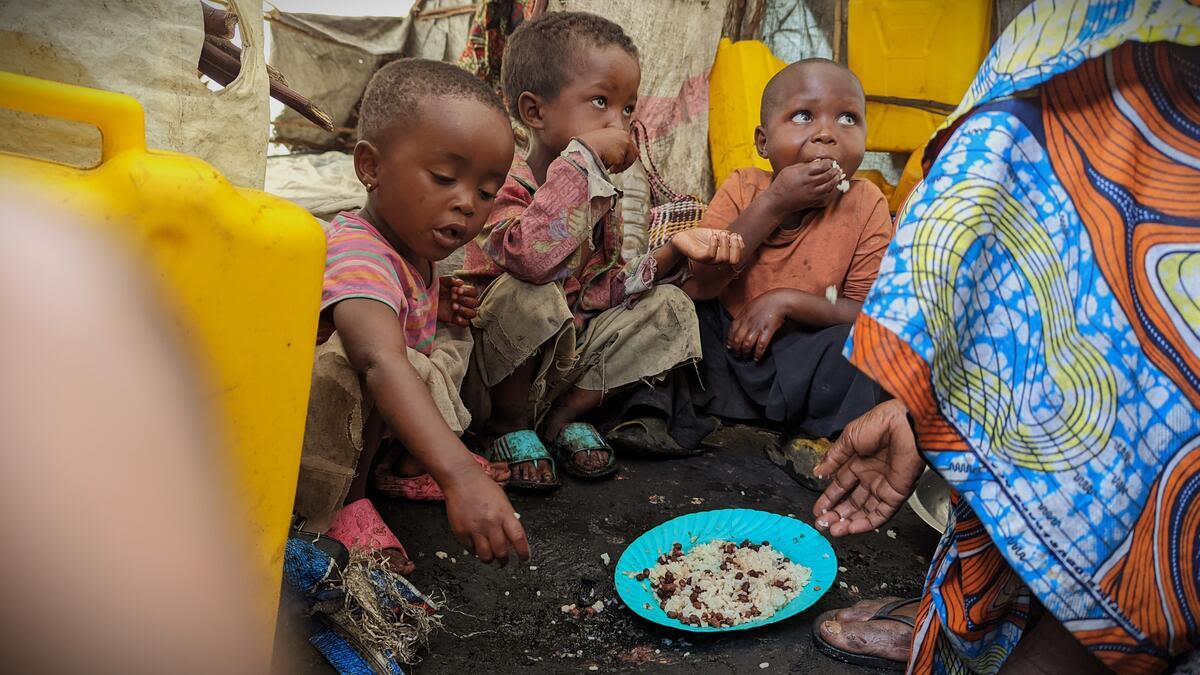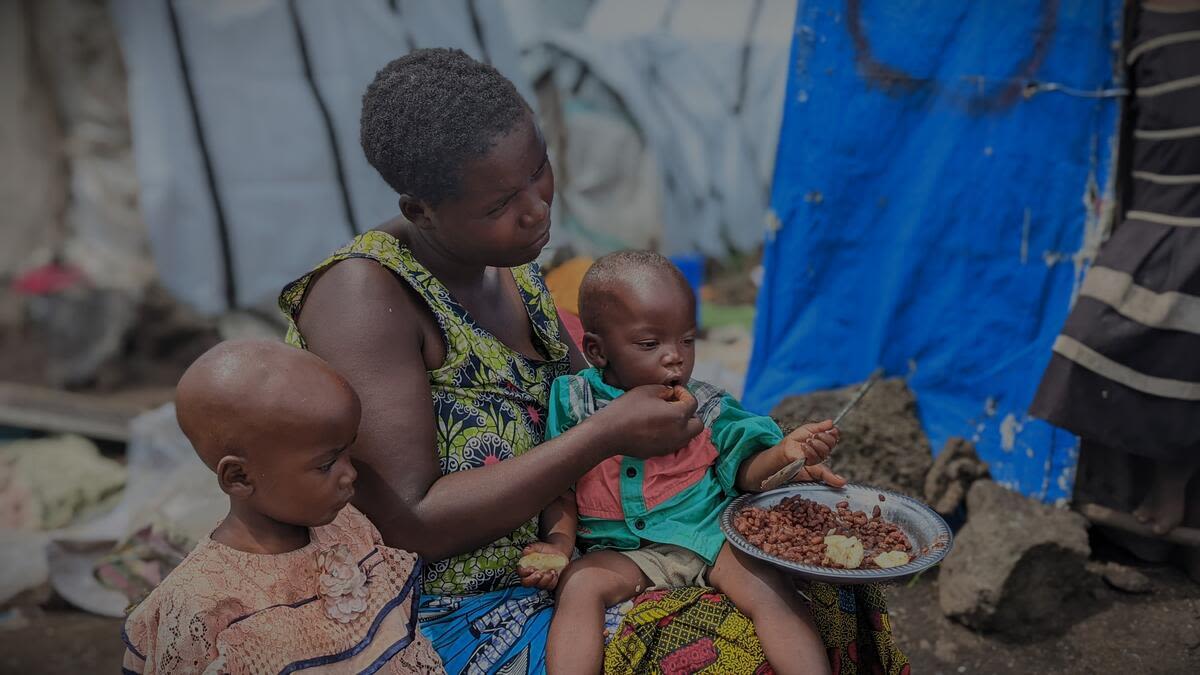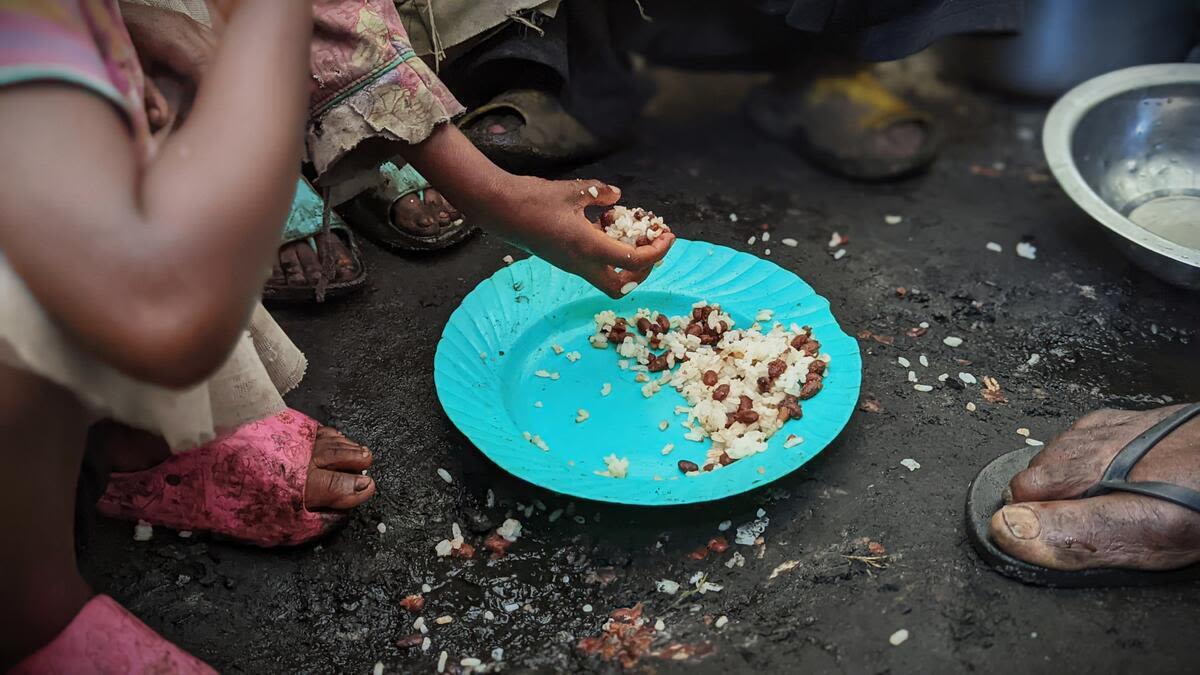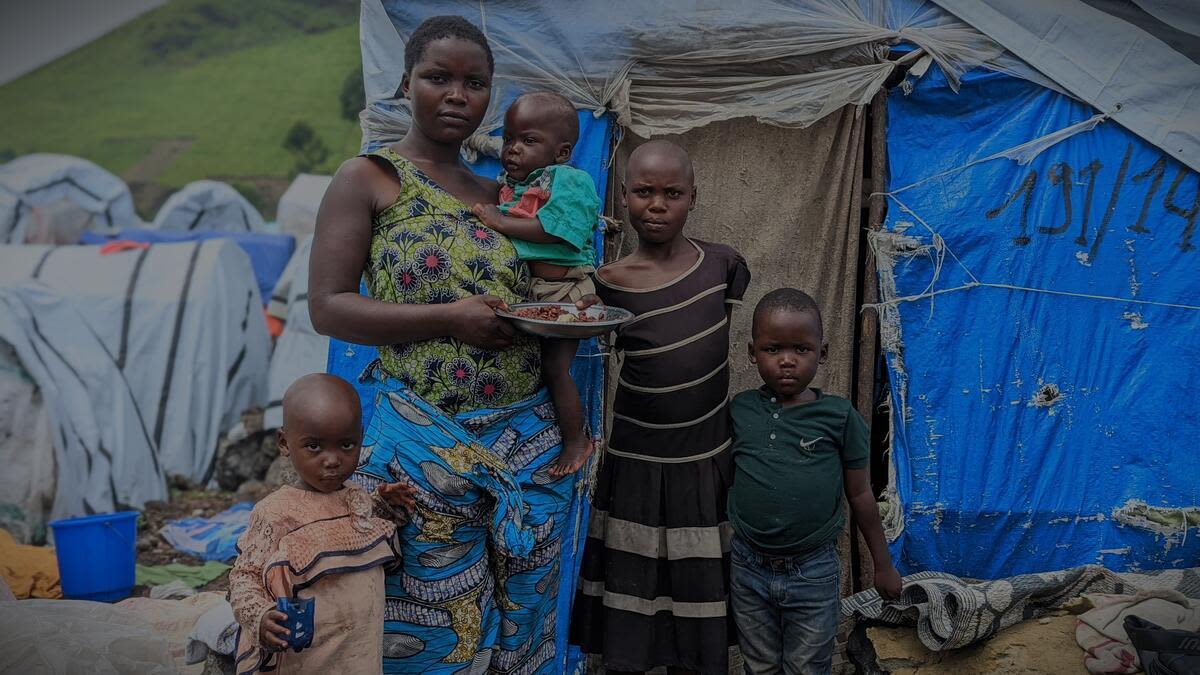Audré in DRC

17-year-old Audré* lives in a displacement camp in Eastern DRC. “When we were in Sake, we had a good life,” she explains. “I didn't finish school because my parents couldn't afford it. But I found my friends [and] we formed a group to learn tailoring. My parents were happy.”
However, the past two years have seen a resurgence in violence in Eastern DRC.
“We had stayed there and life was so good. Then we heard that the rebels were arriving and killing people with bullets.
“We didn't have enough money, so we took a small sum and negotiated with a motorcyclist to bring us here to the camp. We built our shelter, and we stayed here and we noticed that life was so difficult.”
Audré hated their new life in the displacement camp, but her father said they needed to make do and find a way to survive where they were safe. As the oldest of her five siblings, she took it upon herself to find a way to work and help the family.
“We decided to stay in the camp and share what little we had. Even if it was only sweet potato, we'll make do with that. I suggested to Mum that I join the others to go into the bush to get wood and sell it. When the members of the community saw us leaving, they advised us against going.”
“One day we were surprised by the arrival of assistance and shortly afterwards we received the ration token and then the help. We received 25kg of rice and 10kg of flour, oil and salt, with the hope that it would cover our food needs.”
“When the food ran out, I told my mum that I was going to go back into the bush with the other girls to look for wood to sell so that we could find even 100 Congolese francs to buy food.
“We started selling the wood and paying for the sweet potatoes. My parents encouraged me because I was the only help in the family.


Audré and her family were surviving in their new life, but one day, it all changed again. “We went back into the bush to collect wood, but when we were making our bundle to go home, the assailants suddenly came towards us, and we started to flee, each going our own way.
“I was wearing a very long dress, it caught on a stone and I fell. The assailants grabbed me and I started to struggle, begging them to let me go.
“They told me that if I refused to sleep with them, they would kill me on the spot. They pulled me and did whatever they wanted, and then they let me go and I went home crying.
“I didn't know where my bundle of wood had gone until I met a woman weeding her field who asked me why I was crying. I didn't know how to explain what had happened to me, or where my friends had gone. So my mum offered to take me to a health centre.”
Today it is hard for Audré to find hope. Fighting persists around Saké, forcing people to flee due to clashes between armed groups. Thousands of people are arriving in the camps around Goma, the regional capital, every day - fleeing the escalating violence in North Kivu. Neither she nor any of her other siblings will go to the bush anymore, and with no one working, they often go a whole day without eating. There is no school in the camp, and all of the children there are now out of school, with rising cases of sexual exploitation, child marriage and child labour.
Funding for rations is only enough to provide three months of support for families living in the camp, but many have now been there for eight or nine months. Cases of malnutrition in the camps are rising, and girls and women are being sent into the bush to search for wood or food to eat. Unfortunately, Audré is not the sole one to have been violated by the rebels who roam North Kivu.
World Vision is working with the World Food Programme and USAID’s Bureau for Humanitarian Assistance in the camp to support Audré and other girls and families with food and cash assistance, water sanitation and hygiene, and attempts to raise awareness and prevent further cases of gender-based violence. World Vision protection experts have been working in Audre’s camp and others in the area to strengthen reporting mechanisms and support for survivors of gender-based violence, including through focus groups, psychological support, and referrals to escalate care where necessary.

*Audré’s name has been changed to protect her identity and keep her safe.
For more on how ration cuts are affecting children and their families, please read World Vision’s new report here.
